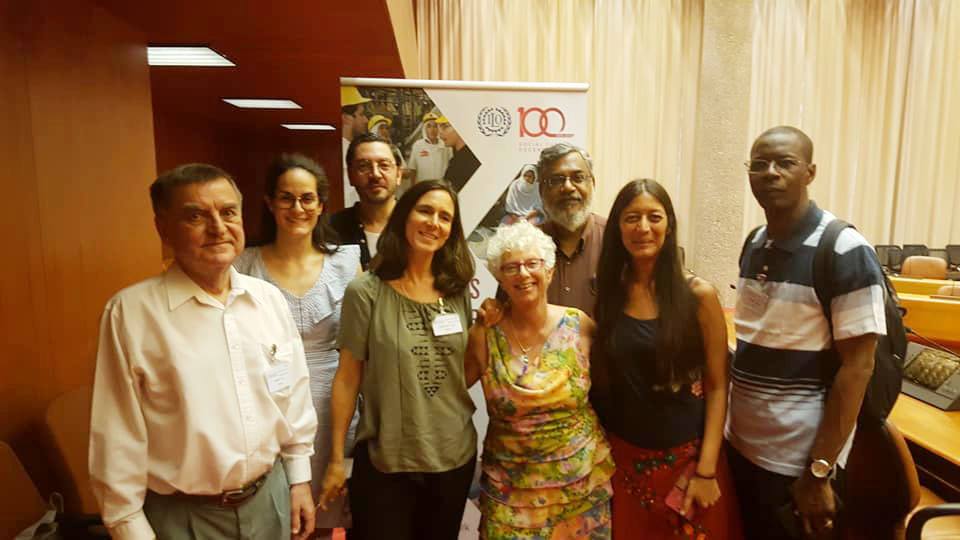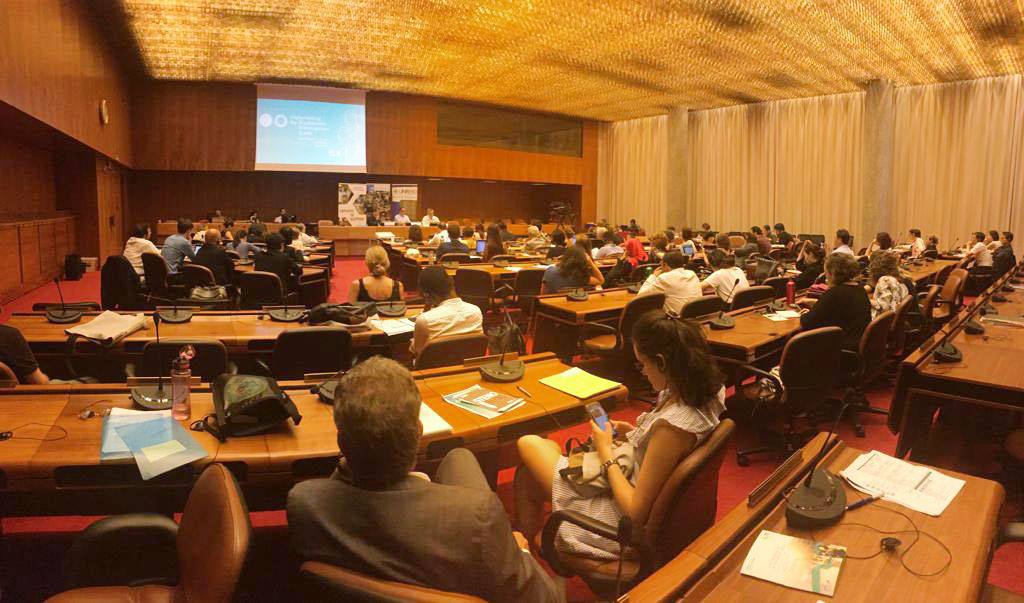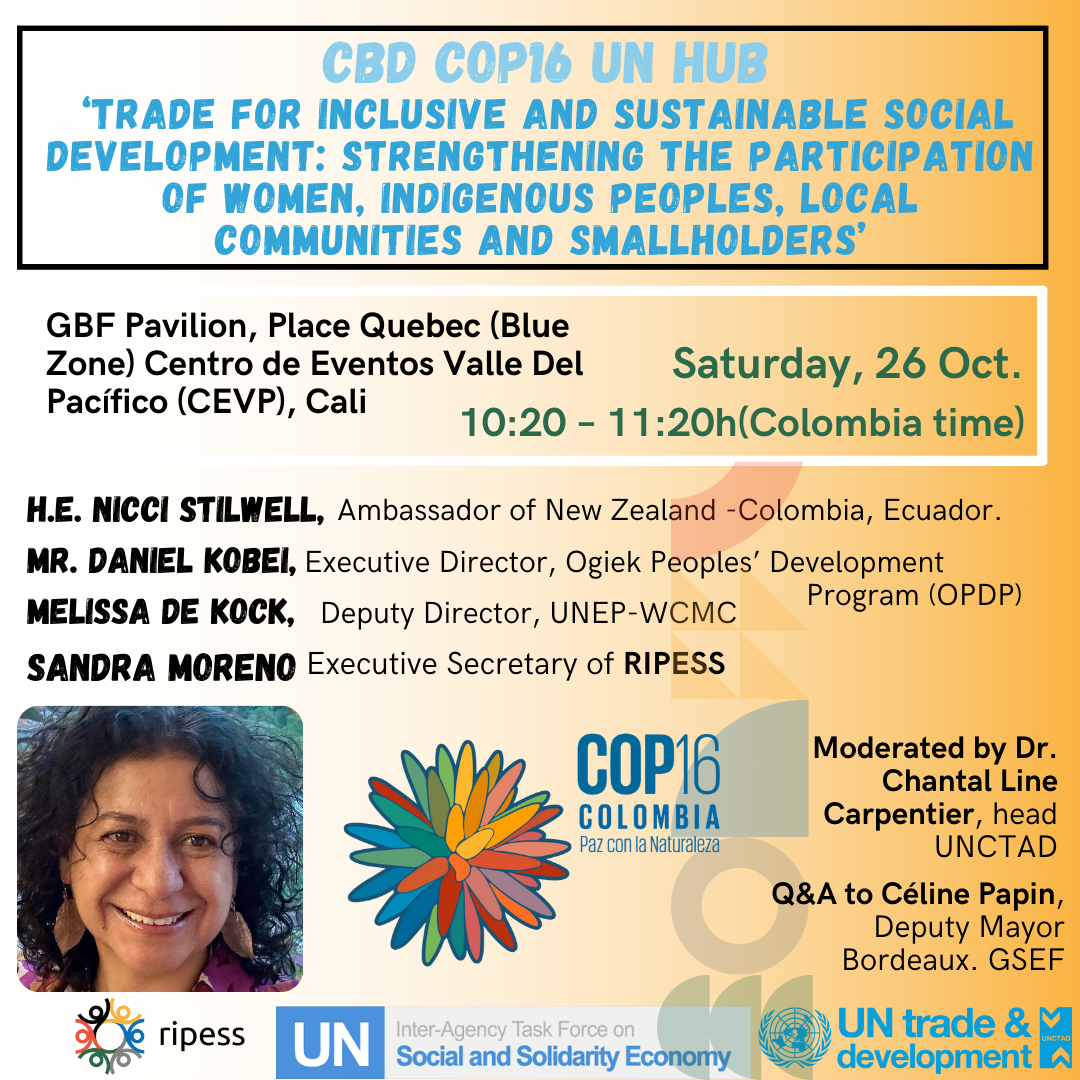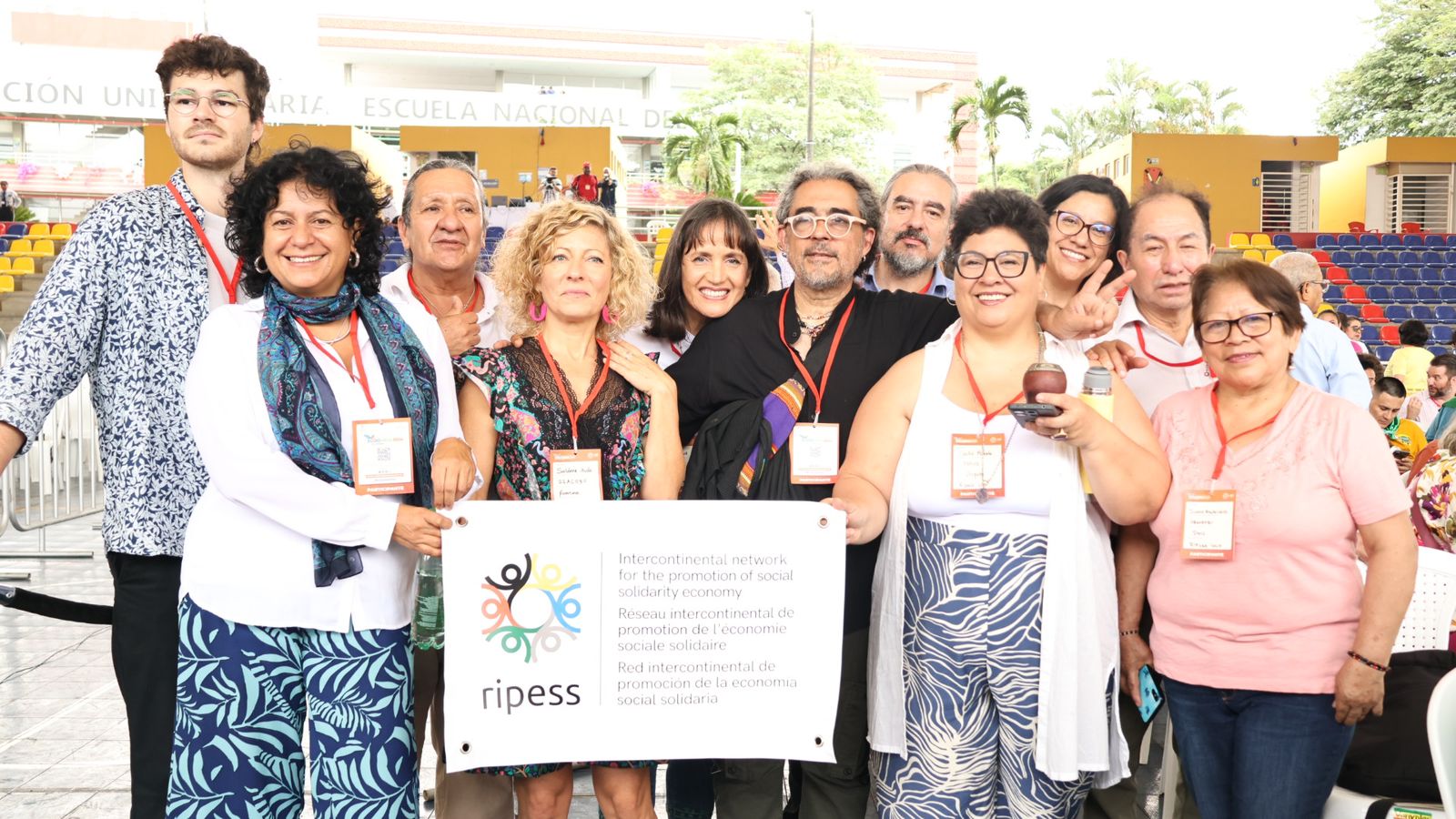The contribution of Social Solidarity Economy (SSE) – from the local to the global – is key to the achievement of the UN Sustainable Development Goals (SDGs). This is the most important conclusion of the international conference “Implementing the Sustainable Development Goals: What Role for Social and Solidarity Economy?”, that took place from June 24th to 26th in Geneva. RIPESS participated actively during the two days to showcase the role of grassroots experiences in achieving the SDGs.
Written by Gabriel Boichat, RIPESS Intercontinental
RIPESS was represented at the United Nations Task Force on Social Solidarity Economy (UNTFSSE) conference Implementing the Sustainable Development Goals: What Role for Social and Solidarity Economy?, with a substantial delegation of seven people from different continents who all played an active role.
43 papers were presented over 20 different sessions, and the conference brought together over 200 participants: around 15 government representatives, 25 people working for UN agencies (ove rand above the 20 members of the conference organizing team), 50 representatives of the NGO-social movement/SSE sector and 70 participants from academia.
As an intercontinental SSE network, it was key to illustrate the capacity of SSE organizations to implement the SDGs (which is totally complementary to university researchers who were the main public/speakers for the study cases’ presentations), and to provide further evidence that can be used to convince countries and international institutions that SSE should be included in all efforts to achieve the SDGs.
Overall, the assessment made at the closing session is that throughout the two days of the conference, the contribution of SSE to the achievement of UN SDGs was highlighted thanks to the case studies presented. For the future, it was agreed that the UNTFSSE, to which RIPESS contributes actively, conveys messages from the field and is currently moving forward on the preparation of a UN Resolution on SSE.
This conclusion is very important for RIPESS. The potential approval of a UN Resolution on SSE would be a key milestone that would have a positive impact on the entire SSE sector. But for RIPESS it is also absolutely essential to ensure that the SSE field actors really take ownership of the SDGs. This is the only way to ensure that grassroots actors can implement SDGs; they need to be aware of their impact and benefits, and bring their own vision to localizing these objectives, and carrying out advocacy on what and how to move forward.
RIPESS’ contributions at the conference

The RIPESS delegation was composed of Laura Cicciarelli (Québec – RIPESS North America), Jason Nardi (Italy – RIPESS EU), Madani Coumaré (Mali – RAESS/RIPESS Africa) and Laure Jongejans (Spain – Executive Secretary RIPESS), in addition to Judith Hitchman (Ireland – President of Urgenci International Community Supported Agriculture Network), Denison Jayasooria (Indonesia – ASEC/RIPESS Asia) and Yvon Poirier (Québec – RIPESS North America) respectively presented papers on SSE experiences that contribute to the implementation of the SDGs as mentioned in previous news. Together with the other 43 local, regional and global SSE experiences presented, UNTFSSE helped to identify and mobilize research from different regions and territories that can contribute to the Task Force’s efforts to scale up and promote SSE as a means of implementation of the SDGs by critically examining the role of SSE.
Judith Hitchman, President of Urgenci International Network of Community Supported Agriculture and Board member of RIPESS presented “How Community Supported Agriculture contributes to the realisation of Solidarity Economy in the SDGs”. This paper clearly shows that food is a cross-cutting issue, and needs to be addressed through the transversality of SSE. It is also through a human rights-based approach that embraces the Right to Food and other basic Human Rights, including health and nutrition, that SSE can be truly implemented. SSE is by definition a human rights-based economy that includes the right to Decent Work among many other aspects.
Professor Denison Jayasooria, President of ASEC – RIPESS Asia shared the main conclusions of his paper on “Community Forestry Projects in Malaysia: People’s Participation in Implementing the SDGs“ and Yvon Poirier, from RIPESS North America presented the paper “Association for Sarva Seva Farms (ASSEFA) India: 50 years of Sustainable Development”.
As part of the conference, RIPESS Intercontinental also organized the working session “Building the SSE Movement from the Local to the Global”. The session showed how the decentralized dimension of RIPESS and its work from local to global are fundamental to the promotion of SSE as a tool for economic and social transformation that improves people’s lives.
Finally, Judith Hitchman, Denison Jayasooria and Laura Cicciarelli participated in the closing session where they highlighted the main messages of the conference with OECD and United Nations Research Institute for Social Development (UNRISD).
You will find a few pictures taken during the conference at this link .
After the conference, remember where to find resources on SSE
Now that the conference is over, it’s time to keep working in order to ensure that SSE is promoted in international forums as a vector of economic transformation, making local SSE experiences visible as a key element to improve people’s lives.
To ensure this objective, it is key to have access to the knowledge on what is being done on the ground. Any policy or international declaration, as well as a future UN Resolution on SSE, can only be effective if it takes into account what is happening at grassroots level.
This is why we strongly recommend people to visit the Socio-Eco Ressource. This webpage compiles relevant articles, news, studies or public policies on SSE (and many other subjects) from all around the world. We specially recommend consulting the mapping on “SSE solutions for SDGs” and also the mapping on “Public Policies solutions for SDGs”.
These key resources complement the more recent UNTFSSE’s Knowledge Hub with a very interesting compilation of SSE local, regional and global experiences. In addition to the papers presented at the UNRISD Conference, presentation slides are/will be available soon on the Knowledge Hub.









Leave A Comment